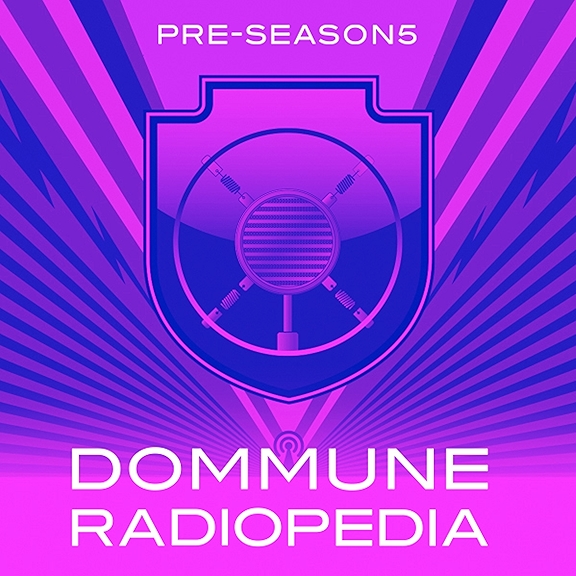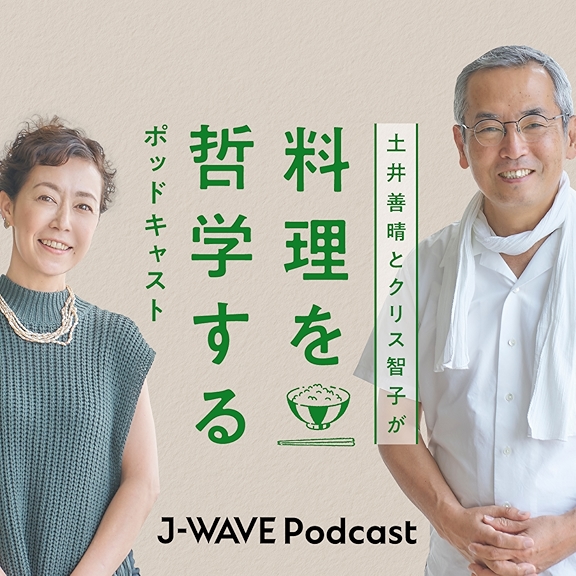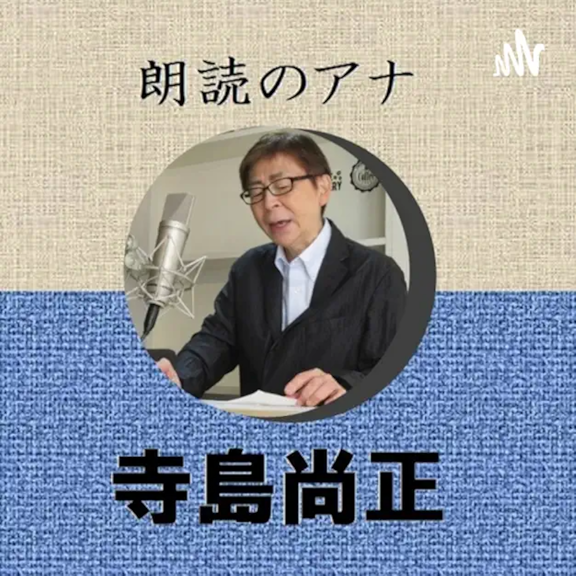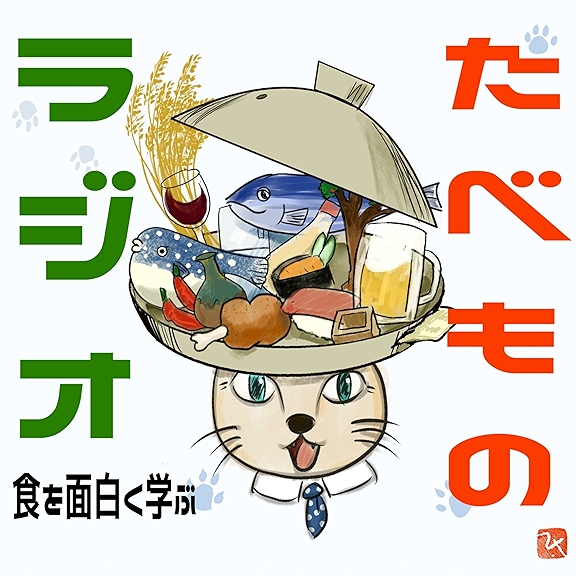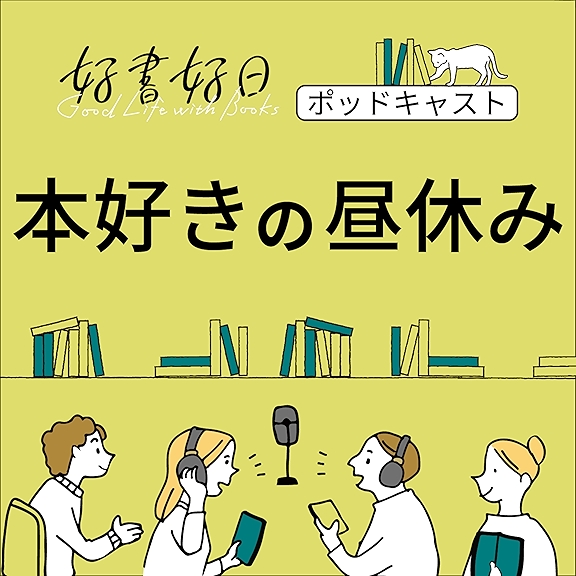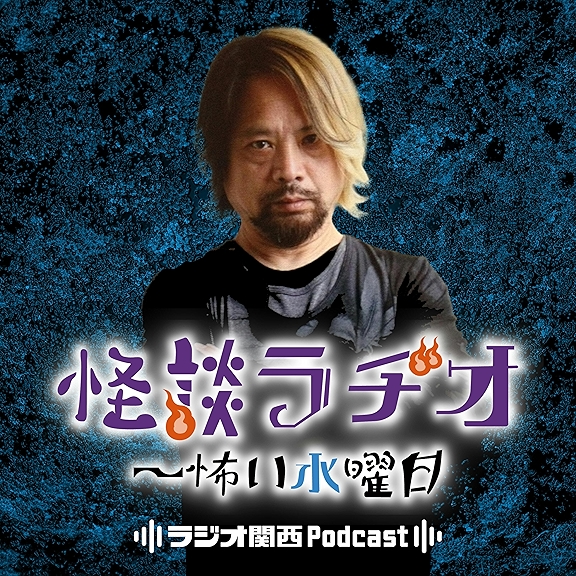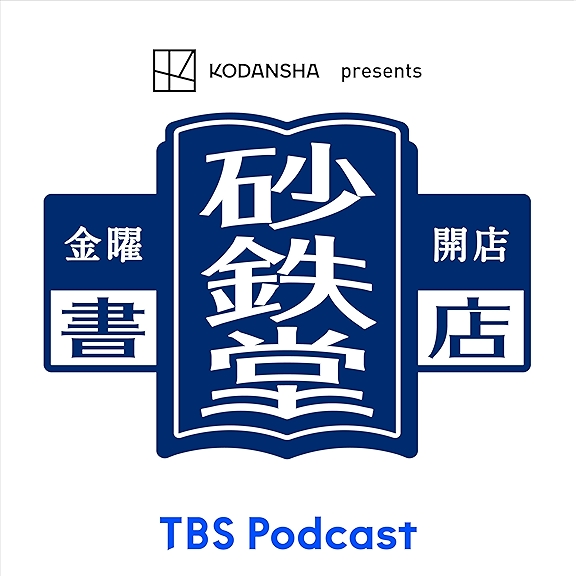
EP 75: The Peace that starts within you. With our guests Mark Anthony King and Melody Garcia.
We cannot change how things are. How we interpret them, ultimately depends on our view of the world and on how we perceive them and what can we do to make a change in this world. “Peace is at every moment. Peace begins with yourself.”
Melody Garcia, Global Influencer, Transformation Catalyst, and Socially – Responsible Entrepreneur. She is an International Best- Selling Author, Award-Winning Sought-After Keynote Speaker, Thought Leader, Writer, International Media Icon, Transformational Catalyst Coach, and Humanitarian. With over 20 years in Fortune 100 Corporate Management and Leadership, Melody has a proven track record of building winning sales teams, business processes, coaching, development, and mentorship, and extensive experience in hiring practices call center management, and more! Melody is a Certified Green Belt Six Sigma, along with extensive leadership certifications and high-ranking accolades that boast of her winning mindset and expertise. Her entrepreneurial spirit, combined with top executive commercial industry expertise, gives her a lethal edge in a visionary focus, balancing microscopic attention to detail and macroscopic implementation for increased revenues, connectivity, and staying power of any marketplace.
Mark Anthony King is a “Master of Words”. He delivers soul-searing messages in both verbal and written form, engaging his audience to deeply reflect. Mark Anthony King is a three-time best-selling author, publisher, award-winning motivational speaker, and one of the most sought-after multifaceted coaches who specialize in Social and Emotional Intelligence. He is also a Neuro-Linguistic Programming Master Practitioner, as well as specializing in Timeline Therapy, Weight Loss Management & Holistic Health, and Strategic Intervention. His incredible love for people has allowed him the privilege of coaching hundreds of clients from all nationalities, age groups, and walks of life in the areas of relationships, leadership, curing lifelong phobias, helping clients achieve physical transformations into their healthier version of themselves or helping a suicidal individual rediscover the beauty of life.
===============================
Ari Gronich
0:00
Just like what we're doing. So, yeah. All right, we're going get started now. Welcome back to another episode of create a new tomorrow. I'm your host Ari Gronich and today I have with me Mark Anthony King and Melody Garcia. It is a double feature for you all. Marc Anthony is a serial entrepreneur, master of storytelling, multimedia persona and a global leader, with a focus on the kingdom of humanitarian impact. His business handlings include a master's in nutrition, health for optimization of overall wellness, and well-being. A Master Practitioner and NLP, strategic interventions of emotional intelligence, etc. His partner melody is part of the global peace. Let's talk with 35 countries handling co-leads of UNICEF, unite Orlando, and international multimedia handling. They're about to launch their sole script, which is a podcast media column and TV show. Is that like a breath full?
Melody Garcia
1:13
Just a pinch. And that was the short form bio.
Mark Anthony
That excited me.
Ari Gronich
1:21
You know, here's the thing, I have been told that I'm going to be in people's pockets, so that when anybody asks them what they do for a living, they just pulled me out. And this is what Ari says. So why don't you guys kinda of tell a little bit about yourselves, Mark, I talked to Melody before, so I'm going let you get started. Tell a little bit about yourself. Why am I talking to you? What is it that you're doing that's going to help create a new tomorrow? And, you know, let's get going.
Marc Anthony King
1:56
Alright, so my name is Marc Anthony King. As far as why you're talking to me, you can thank Melody Garcia for that for putting us into it's a contact. You know, I full disclosure, full transparency. I didn't know the name of the show until right now. And I absolutely love that. You know, we live we live in an age where can I be candid? Or do I have to be like, super politically correct here?
Ari Gronich
2:24
No, there's no political correctness allowed. Okay, perfect. No, no, you're not allowed to censor yourself at all.
Marc Anthony King
2:34
Alright, so we live in an age where, unfortunately, the leaders and the trailblazers in the world are just horribly narcissistic, and the things that they're doing, and the things that they pride themselves on, and what's important, it's all self-glorification, at the end of the day, you know, so you asked what it is that we're doing to make a better tomorrow. Again, speaking, truthfully, we have the audacity to put God first and put service to humanity. Second. And that's an interesting concept for a multitude of reasons, you know, and I'm not going to get into religious discussions or religious debates. But my greatest mentor, Jesus Christ said, that the two things that we should do in this world in order, it's service to God, and then service to humanity. And somehow a Melody says that she was at best, when you put God first and humanity second, God finds a way of putting you first. You know, I never thought in a million years that I'd be doing the things that I'm doing now. It's, I didn't plan for it. And when it started happening, I asked myself a, no disrespect, but are you sure God that I'm the right person to be doing this? Because it was never on the plan, you know, and we become so myopic in our desires, and we become so like, single minded and tunnel vision in terms of what it is that we want, but ultimately, at the end of the day, that might not be in alignment with what God wants for us, you know, and when we surrender in that regard, we allow Him to place us where he wants us, the impact that we make, it's not self-serving, it's not self-glorifying. It's all to glorify Him and what better way to glorify Him then that actually doing something to create a better tomorrow, not hypothetically. Not conditionally, but literally, and long, long story short, short story long at this point, I'm sure. We were now in a position where we're handling the and I say this humbly, and I say this with so much gratitude in my heart, the welfare of 36 Different nations across the world, you know, and when I say welfare, I'm talking about hygiene products, I'm talking handling internally displaced peoples, orphans, preserving pygmy cultures, teaching children about their rights, teaching women about their rights, women's empowerment, agriculture, bringing in food, bringing in clean water, bringing in infrastructure, into incredibly remote areas. You know, these are, these are responsibilities that I don't take lightly. And one of my greatest pleasures aside from talking about God, and how amazing God is, and how amazing that woman is, right there on the screen underneath me here is doing what I can everything I can, you know, Melody has an amazing prayer that says, God, use all my gifts, talents, and annoying things and maximize everything that you gave me so that I can help make the world better, and help people, you know, help me help them. Being able to use that platform to talk about what it is that we're doing, and who we're helping is, is become the greatest joy of my life at this point.
Ari Gronich
6:09
Cool, so I'm gonna interrupt you a little bit.
Marc Anthony King
6:12
So I was I was rambling at that point.
Ari Gronich
6:16
I don't know this about me. But I'm a very non-religious person, very spiritual person. I've studied pretty much most of the religions in the world, like, at a young age. And so I was, you know, nine years old, and I was I was in Hebrew school, from the time I was like, five. And then I started when I was nine, practicing Buddhism. And through Buddhism, I met my girlfriend, who lived on a reservation, and I started practicing and studying Indian way, and native way. And from there, I ended up studying Druidism and the Quran, and I kind of just love studying religions, in general, but I don't find myself in the same kind of state that you find yourself in, right, as far as like, having a specific and direct person that I think I'm speaking to. And so, I just want to I want to open this up, because the things that you're doing are amazing. Some people who are listening to this show are not going to resonate with the words that you're using, as far as God kingdom, King, you know, those kinds of things, they might resonate with the word source, they might resonate with the word universal truth, they might resonate with a lot of other things other than those words, and I want them to get turned off to the things that you're doing because of the words that you're using. Right. And so, I just wanted to emphasize that the things you're doing are amazing. To me, they have nothing to do with anything other than what's in your heart and your soul. Not so much a higher being that you're answering to and so I have a question for you. The question is serving God serving humanity itself? Because if we watch or listen to the scriptures that you talk about, and I will, there's a lot of stuff that says that we are in the likeness of God. So, by serving humanity, are we not serving God?
Marc Anthony King
8:39
I would say it all depends on the intention, right? Because I used to fall into this category, many moons ago where, you know, I wanted to be seen and I wanted to be praised for all the good works that I was doing. So, at the end of the day, you know, it wasn't about God, and it wasn't about humanity. It was about Mark Anthony Kings ego. And that intention is everything. It's relative, but it's everything you know, so I would say yes, if your intention is pure and not self-glorifying,
Ari Gronich
9:16
awesome. Melody you're up all
Melody Garcia
9:19
Alright. What did you want me to cover? Everything about me? Was more Granville law.
Ari Gronich
9:27
Why you're why you're helping to create a new tomorrow today.
Melody Garcia
9:31
Well, so many platforms. We talked about UNICEF as one of the handlings you know, back in 2016. I decided to go with a what is the world's largest children organization that's known and then recreate that in local Orlando what was UNICEF. We live in a world that keeps basically putting up the message let's leave a better planet for our children. Let's leave a better planet for our children. Well, let's use some common sense the planets won't resolve its own problems. Without better leaders, you know, a lot of the handlings that I have along with Mark as coaches, I'm one of the few certified PMA coaches in the world. What does that mean? Psycho neuro actualization? What does that mean maximizing the human potential? One of my, the person that certified me in this is Dr. Steve Miraboli, one of the top behavioural scientists in the world, right. And let's pair it down to simplicity here. A lot of adult’s root cause problems can be traced back to their childhood. We call the childhood trauma, and a lot of that from abandonment issues, abuse issues, you name it, that shapes them, to who they become in the adult stage. So, my genius basically said, Well, then let's leave better children for a planet. If I can impact at those young foundations, whether whatever their social, economic, cultural, whatever status background is, and show them what is love, what is fairness, what is equality, what is not having all this boundaries that have been imposed, almost impossibly by the adults by the environment they live in, then we can better leaders for tomorrow that started with that, you know, and giving sensitivity to your audience. But echoing Mark's sentiments were again, heart centered servant leadership, right? I was blessed with the opportunity to not contain it in just representing 190 countries my journey spoke about the first time I decided to say use me to help them not to glorify Melody, that very first event brought on impacting and saving over 20,000 lives halfway around the world, which is a lot more than what people can ever dream of in their life, collectively. So, I decided, okay, well, you know, I did that was my one all be all, but God had different plans. That was just my beginning, came UNICEF. And then he didn't contain, and I have the passion, the purpose once you truly have what Mark has, is a clarity of His purpose and impact. What is his life legacy message? You know, it's not just about boards, because as he beautifully puts it, beautiful words aren't always true. And the truth isn't always beautiful. Right. And that's a powerful statement to make. Will, lived authentically. It went from well didn't stop there. When we tap into the gifts that we have talents, gifts, anointing, whatever you want to call it. I discovered I have his love of passion for writing, well, didn't stop there. All of a sudden, that little column became a well-known column in many nations and started winning awards for it. So now I'm going to call him this for three international magazine that has anywhere from 11 countries to 74 countries reach, but it didn't stop there. Right comes global peace, let's talk that literally got handed to myself and Mark to now lead 36 countries, the handlings we have are massive.
Ari Gronich
12:59
purpose is exactly the global picture.
Melody Garcia
13:02
I had more. I'll let Mark lead that. And then I'll add whatever you missing as far as global peace, let's talk.
Marc Anthony King
13:09
So global peace, let's talk is an organization that was founded by somebody who's become like a sister, dear friend, mother figure to Melody and myself. She again had the courage and the audacity to say yes. And to do something that shouldn't have worked. That seemed far-fetched that seemed insane at the time. And through sheer determination through sheer love and compassion, she has created this organization that as it stands, as of right now, is in 36 different countries, and has now what? how many members that we just recently add, like as of not too long ago?
Melody Garcia
13:58
So, we just added an additional 35,000 members with global peace, let's talk it's early concept very simple, because the founders in her 70s, in the UK, was just to spread peace unknowingly that intention brought on everything that needed to line up and in 10 months Ari. This is just a 10-month-old Foundation, non-profit 10 months. We're in 36 countries. It’s incredible. It's almost unbelievable. And unless you're with us in those meetings, we are meetings with politicians, you know, from different countries, we are in meetings with leaders, entrepreneurs, but what really touches us as when we hear from people on the ground, what they're going through what the media doesn't cover. This is why Mark and I have the audacity to speak what is true, right? How are we changing a better tomorrow when we hear people from Cameroon, Africa being hunted down worse than animals and being slaughtered at that? When we're hearing about children try, you know, have groundworker saving children that have been violently assaulted. And all they're asking for Ari is a piece of paper and crayons so they can continue with art therapy. This is Yeah, art therapy.
Marc Anthony King
15:18
Soccer ball so they can kick it around.
Ari Gronich
15:21
So, what exactly does the foundation do?
Melody Garcia
15:25
Yeah, so we support these 17 sustainable goals of the United Nations, which everybody can Google that part. But then it's not only supporting with message, so for example, to fight famine, we have an agricultural program that literally provides food on the ground, and then not only do that, but also somehow create an entrepreneurship program. So that people are sustaining their livelihood.
Marc Anthony King
15:54
Yeah. Bringing repeatable, scalable, sustainable infrastructure into these impoverished areas.
Ari Gronich
16:01
Cool. Question, which new technology is being used and how much old technology is being used in what you're bringing? So, things like for agriculture, how much soil are you teaching or creating soil garden, versus hydroponic in warehouse and things like that?
Marc Anthony King
16:23
So currently, Kurt, you know, that is the goal, the goal is bringing technology into the equation because I always found it curious, you know, we invest so much money into smartphones, right? Smartphones cost over $1,000. Today, I mean technologies is growing at such a rapid pace. And as humanity, we're evolving with it in every area of our life, except agriculture. agricultural practices are still like 60 years old, and we're still implementing them today on mass. To me, it makes no sense. Why would you allocate so much resources to a phone, when a phone, you can't eat a phone? Unless you're David Blaine, I'm sure he's eating a bunch of iPhones in his career, but you can't eat a phone. So, the whole goal is eventually to make sure that we are leveraging as much technological advances and applying that to where we're growing food. But currently, I mean, it is we're doing what we're doing in America, at this point, where what we're doing now is though, we have this this really big parcel of land that we just acquired, we're going to use that to create an agricultural Academy, where we physically matriculate students and we teach them how to grow food, we have an onsite, really, really large garden growing, you know, things, things that grow well, in certain parts of Africa, like Yuka, and sweet potatoes, potatoes, cabbage, Moringa. And, again, taking those products and then selling them and using that to create infrastructure within the community, in addition to online academies, because we're looking at opening up the schools in different parts of the world. But right now, we're looking at, um, is it Botswana now, where the first school is going to be open? Yeah.
Ari Gronich
18:19
Botswana?
MG
Melody Garcia
18:20
Botswana, Africa. And we've also got
Marc Anthony King
18:24
We have a land in Kenya now as well, right?
Melody Garcia
18:27
Yeah. But we've also got Jamaica with their initiatives. And, you know, you talked about agriculture and technology, right. So that's part of one of our contacts in a different country, is helping us bring it to a level where at least we can use modern technology to expedite some of these initiatives. We are actually also creating new programs that bridges gaps, instead of that whole stay in your lane message that we talked about. Part of that is creating like a child ambassador program that will connect children around the world that shows leadership. Remember, I don't know Ari where you ever were you? Did you have some knowledge of old pen pal style, where you make friends by writing letters.
Ari Gronich
19:13
I'm an old fogy at this grace
Melody Garcia
19:19
But do you remember when we used to write to friends from a different country and how excited we were to get that that letter?
Ari Gronich
19:25
Oh, absolutely. Yeah. Pen pals was a big thing nowadays it's you know, Facebook WhatsApp.
Melody Garcia
19:32
But there's so much mystery and just excitement when you get that letter stamp from a different country, and they send you pictures. It's recreating that in the newer modern version of child ambassadorships. But we're looking specifically for children that have demonstrated leadership and a global thinking. Right, what does that create peace, what does that create collaboration over competition?
Ari Gronich
19:57
Right. So, I have a good friend who has a non-profit and motivational missions. They do a lot of child trafficking, work and education, but they also travel to like the worst places on the planet and do talks in prisons in like South America and stuff like those beliefs. In Dominican Republic and all-over South America, they do these motivational missions to help with child trafficking. Do you guys as part of what you do team up with other non-profits and other organizations that are doing good? Or are you looking for people to just join in on what your thing is?
Melody Garcia
20:49
Now we're actually in collaboration mode, but we are highly vetting any type of partnerships or invitations or collaborations. Because, you know, unfortunately, in my walk with UNICEF, right, as well, I've done a lot of call to action against human trafficking and drug trafficking and skin spit up statistics pastored, and a lot of people can and just the platform of trafficking, which is again, you know, the solid pandemic. Oh, yeah. Well, the statistics are this it's $152 billion industry well-funded, there has over four 40 million victims worldwide.
Marc Anthony King
21:27
For the viewers, she did say billion with a B.
Melody Garcia
21:31
And child trafficking right now over 5.4 million children million are being trafficked. Right here in Florida, where I live, Florida's the third highest state reported when it comes to trafficking, right. People and this is just, you know, a side-line educational piece for any adults, parents, aunts, grandmothers, you name it, anybody that has an association with a child, watch anything that has to do with their social media handlings. From Snapchat, it Tik Tok, to Instagram, because a lot of traffickers are masked as predators mask as other children or teenagers. And people don't think about this that lures them. Because there's commonality, parents, if you have GPS tracking devices on your phone, specially when it comes to Instagram, social media, turn it off. All you're doing is literally giving these people triangulation of your activities. In fact, here's one thing, that's because we live in a social media world of posting everything that has to do with your children, and everything. I would encourage you to really restrict that and take you know, what are you promoting? Why are you showing your children all the time? Yes, we love we love their accomplishments. But you have no idea who's actually looking at your materials. More often
Marc Anthony King
22:54
I know personally, individuals who have been trafficked by way of Facebook, they found themselves sold into human trafficking, because they began chatting with somebody on Facebook and within a few months, this individual was sold to a pimp.
Ari Gronich
23:19
Yeah, it's amazing. The craziness that is happening right out in the open. And the fact that people aren't recognizing what's right in front of their faces is kind of like it is very telling. So, the one of the reasons I wanted to have you guys on is because you're actually doing the things that most people are talking about doing. Right? So, I have this saying, and the saying is we want to stop gathering to complain and start collaborating to succeed. And collaboration is the main part of that we want to collaborate for results, right? So how do you guys collaborate, you've been collaborating with governments I want to get like a picture of what that looks like. So that people who are feeling like, that's just too big for them to be able to do I could never meet with a politician, I can never meet with a government official. Right? So, they could get an idea that this isn't like a big deal. There's they're just human beings like us, right?
Melody Garcia
24:26
It’s not, for example, and then I'll let Mark also explain this. For example, my work with UNICEF unites Orlando, it's an advocacy team in with beautiful, intelligent members and leaders. However, what we start is just knowing it starts with educating yourself, what are the issues? Right, what are the root causes when we do advocacy, for example, you know, this is my fifth-year advocacy Mark have the honor of actually leading part of that advocacy this year. It was literally meeting with members of the US Congress, right? And humanizing the statistics that they say, my story sure shares, everybody has a story. That is the one thing that that literally ties humanity is through story shares. But we tell stories. And then with that comes the other platforms that we represent. I'm sure people can tell stories. That's what they call their friends for. It starts as simple as that. You know, it doesn't have to be this Oh, my goodness, we're meeting with the senator from a different country. That's a whole different global thing. But it starts with a Let's educate ourselves be how can you, you know, for those that are interested, whether it be UNICEF, whether it be global peace, let's talk, I'll drop our email here on the link on how they can connect with us and to learn more. But it's really simple. It starts with the desire to make a difference.
Ari Gronich
25:48
Right. My thing is, what I see is that the barriers of fear people have stopped them from being able to do the things that they're complaining about. So, for instance, in my town here in Florida, every time the politician runs for office, it seems like the biggest deal is the roads and the potholes. It's like the potholes. The potholes.
Melody Garcia
26:21
You're definitely not in Orlando. That's
Ari Gronich
26:23
Not in Orlando, right. Closer to the beach. But it's like this is a big, big deal for people, the roads, the roads, the roads, right. The things that are really important. Like, we have the river, you know, Indian River, I mean, it's being completely polluted. We have, we're right near an Air Force Base, and Space Center, and all that. So, we see all of the environmental damage, but the issue is the potholes. So how can people get away from? See, I think that people are going after the potholes because they think it's something that they have control over. And I don't think that they think that they have control over the environment and the policies for the environment or agriculture, the policies for agriculture, the policies for human trafficking, I don't think I think that that feels too big for somebody. And so, they go after the potholes. You think.
Marc Anthony King
27:35
I, I'm so happy that this isn't centered here. I, you know, absolutely. I hear and I appreciate what you're saying it's on the journey. I think we all experienced the same thing where I want to make a change, but I don't know where to start. I want to help animals, but do I join PETA? Do I join the ASPCA? Do I join the Humane Society, and you kind of sort of get so bogged down in the variety that you have, you know, it's like, you have that phenomena that occurs where you have 10,000 channels, but there's nothing to watch. So, a big part is just being decisive and just making a decision. It doesn't have to be the perfect decision. At the end of the day. If you choose the ASPCA and you don't like it, you learn something, you contribute it, then you can move on to the Humane Society, right, because you got an education. So, education, be decisive, and get an education and use it accordingly. You know, and in terms of the pothole that Melody and I say, have the audacity to care about humanity more than you care about yourself. You look at the people who've created the greatest change people who we admire who we love, who we tried to emulate like Mother Teresa, a poor little Indian woman from Calcutta who didn't have a whole heck of a lot of money. And yet every single world leader was at her funeral, and she died. Why is that? She wasn't worried about the potholes. She wasn't worried about how the potholes inconvenienced her journey. She wasn't worried about how the potholes affected her rims or her suspension for her commute. She had the audacity to care about other people who never even knew she existed. Who would never even know she existed care about them more than she cared about herself. You know, there's something to be said about experiencing compassion. Compassion means I understand. I empathize where you're coming from, and it hurts me to the degree that I'm willing to help you. That's why I'm not an advocate of complaining. Why? Because complaining eases pressure. Why is it that a whole bunch of people can gather together at an event complain? accomplish nothing, but they feel good? At the end of day.
Ari Gronich
30:01
Like every protest I've ever seen.
Melody Garcia
30:04
Yes.
Ari Gronich
30:07
Just saying every protest I've ever seen, and especially what happened last year last summer. Especially what happened last summer, was letting off the steam. It's a pressure cooker. Right? So, here's my question to you, then we don't want to let off the steam, we don't want to let off the pressure. What do we do instead of that, because if we're in a pressure cooker, at some point, the pressures either gonna get too big, and it's gonna blow up, or we're gonna let it off slowly, you know, or we're gonna, like, protest and create some violence and let it out that way. So, what is what is your solution? I know you're an NLP master. So, you gotta have something.
Marc Anthony King
30:52
When and we're gonna use the pressure cooker analogy. So, what happens to anybody who's ever used a pressure cooker, if you open the pressure cooker right away, it explodes. Literally, it explodes. But what happens when you take that little nozzle and you just turn it sideways, you have a consistent stream of pressure, I don't believe in keeping everything bottled up, I believe in taking what would have otherwise resulted in an explosion and channelling it into a consistent stream. What that stream looks like, that depends on how much you're willing to care for humanity, that depends on how far you're willing to go to solve a problem that depends on how, how resourceful you're willing to be. You know, I know that for myself and for melody that, obviously, you know, we were in in Orlando, and basically, during between the month of October and mid-January, we're just heavy that is when UNICEF is in its heaviest humanitarian work. You know, all you got to do is drive around a certain part of your town. And you look at the living conditions of people. That should break your heart, but it should anger you. It should anger you to a point where you don't post on Facebook about it. And ease the pressure. You find out how you can actually help. You know, Melody and I were we're in a trailer park called Oh, goodness, what's it called? Happy oaks. Something? Well, it's one of the most unprogressed trailer parks in Orlando. And you go there, and it's like a third world country. I remember vividly the property manager, he manages 25 or 26, semi-trailers that are there. You would think that he would live in the best trailer and the best home there because he manages everything. This man lives in what looks like a shack, like that was abandoned a long time ago. And not only does he live there, but he lives there with his wife, and his six or seven grandchildren. You know, you see something like that. It doesn't matter if you don't know what to do you, you buy food, you donate money. You know, it's like a phenomenon where I want to make a change, I want to help somebody, but when the homeless person walks by my window, when I'm at a traffic light, all of a sudden, I'm pretending to text or I'm pretending to look in my glove compartment or in my center console. Or I'm just I happen to be looking this way when I know that he's over there. You know, we sometimes things are painful, right? And it hurts to see certain people's living conditions and it hurts to recognize what's happening to our children in this world. You know, it's painful to know that child trafficking is 152 human trafficking $122 billion a year. Industry and it's happening right in front of us. It's painful. I got scolded. While I was speaking to shocker. I was speaking to a senator's office, or was he a senator?
Melody Garcia
34:23
It was a congressman.
Marc Anthony King
34:25
Congressman, can I say his name? No, okay. I was speaking to a certain Congressman's office. And I got scolded because I shared my particular story. My battle with mental health since I was a child, every label I was given a DD ADHD dyslexic, socially anxious, being epileptic. These are all labels I was given and then being sexually abused by Men and by women as a child, I told this story, right, because we connect via stories. Well, UNICEF attempted to silence me and the congressman, his office, we got into a bit of a 12 round fight, right. And at the end of the day, just knowing that people like that are in office, people who are willing to disrespect not just the struggle of the individual, right, me, but are willing to hear a bunch of individuals say, we need your help, we need your support, because there are girls right now in Africa, being raped on the way to get water that us in America wouldn't let our dogs drink. We need your help. And for that office to turn around and say, you know what? We don't support that. Because we need to be helping kids in our borders. Because, you know, white children are more special and more worthy of protect than those black children in Africa. Knowing that people like that exist, should light a fire and everybody in the way that they vote. And in the compassion that they're willing to have when they look at children, and when they look at that homeless man down the street.
Ari Gronich
36:25
We're shitting on people a whole lot. Right. So, it should do this. And it should do that. I get that. But there's a huge population of people who can't see in front of their own shoes, because their own shoes are holy, their own shoes are tattered and worn, because they're working two and three jobs, and they don't have time to think of anything other than trying to survive, right. So, I get that we're shooting on what people should be doing. I think most people, most people these days, are in a heightened state of fight or flight, their nervous system is completely out of whack and not working properly. We're reactive instead of responsive. So, we react to triggers versus respond to events, and truth, in fact, right? So, all of these should that we're shooting on people, right? What is it that is going to take us to actually care about us? Right next door. So, we have the world sucks chart, right? The world sucks chart looks like this. It's me as an individual. Right? And then my family, and then my community, and then my county, and then my state, and then my country, and then my, you know, common, right? The world sucks chart, because most people are stuck in the individual, maybe individual family in order to get to the worldview, where they're literally able to take that bigger picture view, you've got to go through individual trauma and pain and sickness and illness, then family pain and sickness and illness, then you got to go through city, you know, pain and, you know, illness. I mean, the pain and illness may be the roads, it may be the fraud and the politics, it may be any kind of thing, right? But we got to go through these layers in order to get to the worldview for most people, just jumping to that worldview is almost impossible. So, let's, drop back. Yeah, absolutely. Let's drop back into step by step it.
Melody Garcia
38:53
Right. So, I'm gonna start with a question for anybody who's listening, watching, you know, this interview? What is the value of a human life, whether it's yours, whether it's





